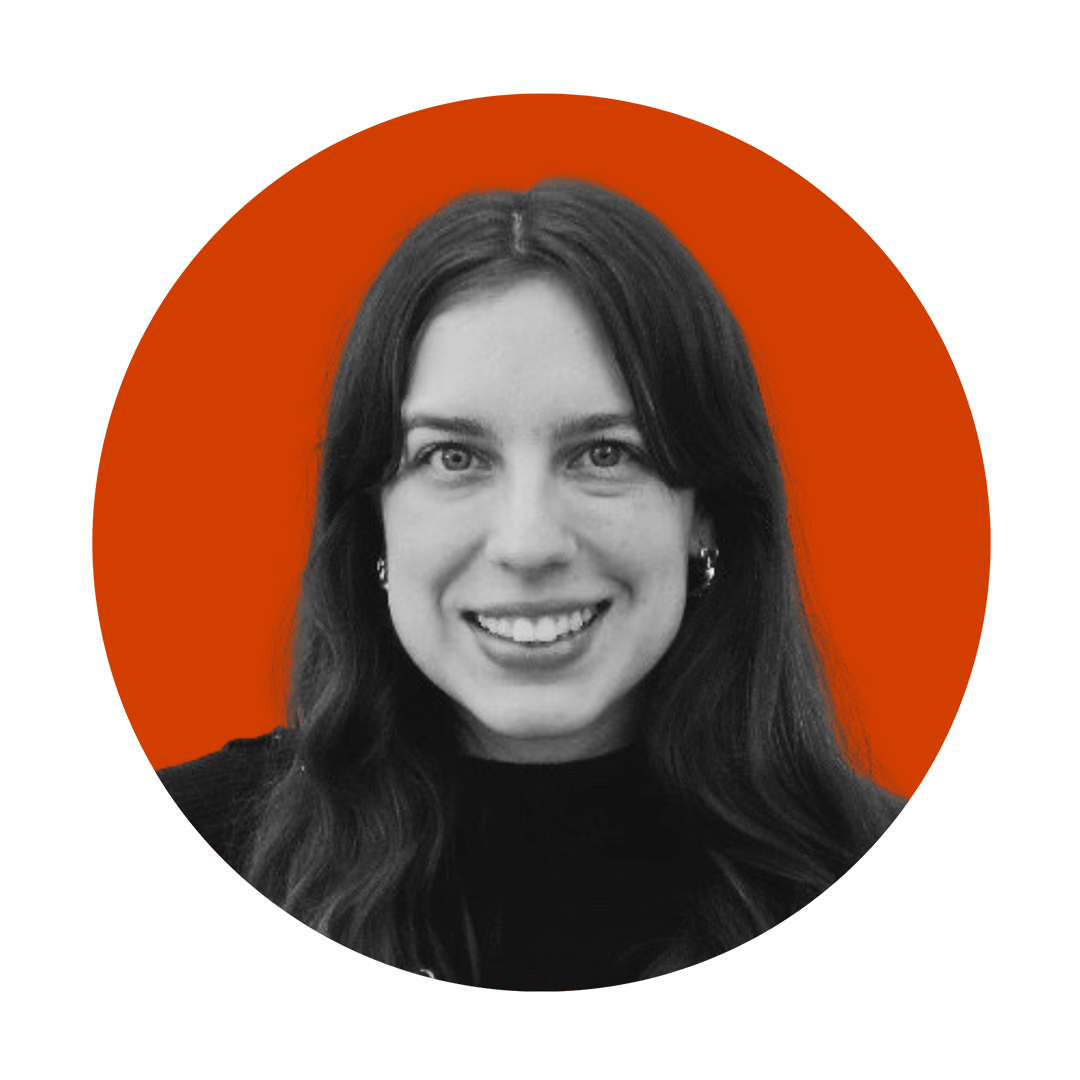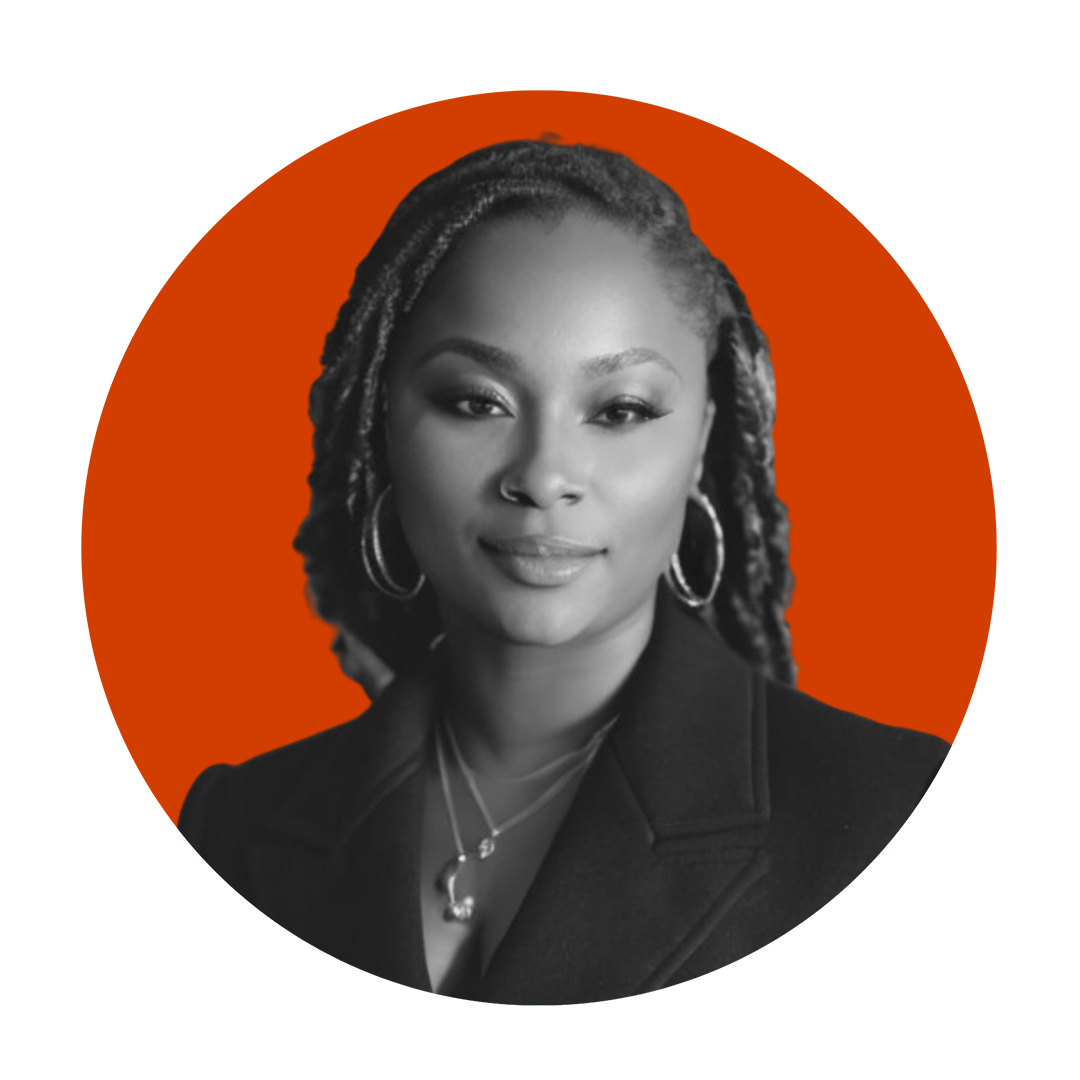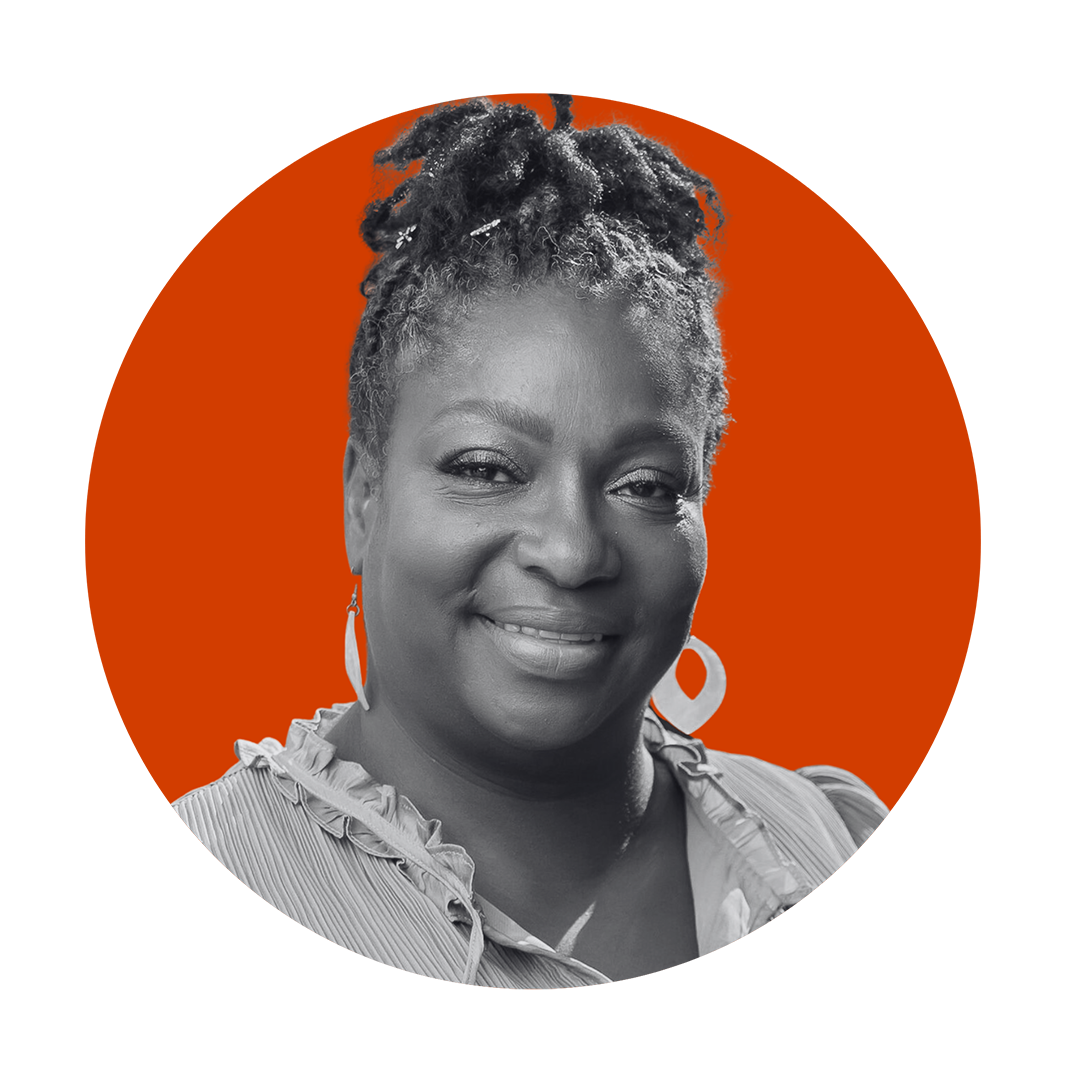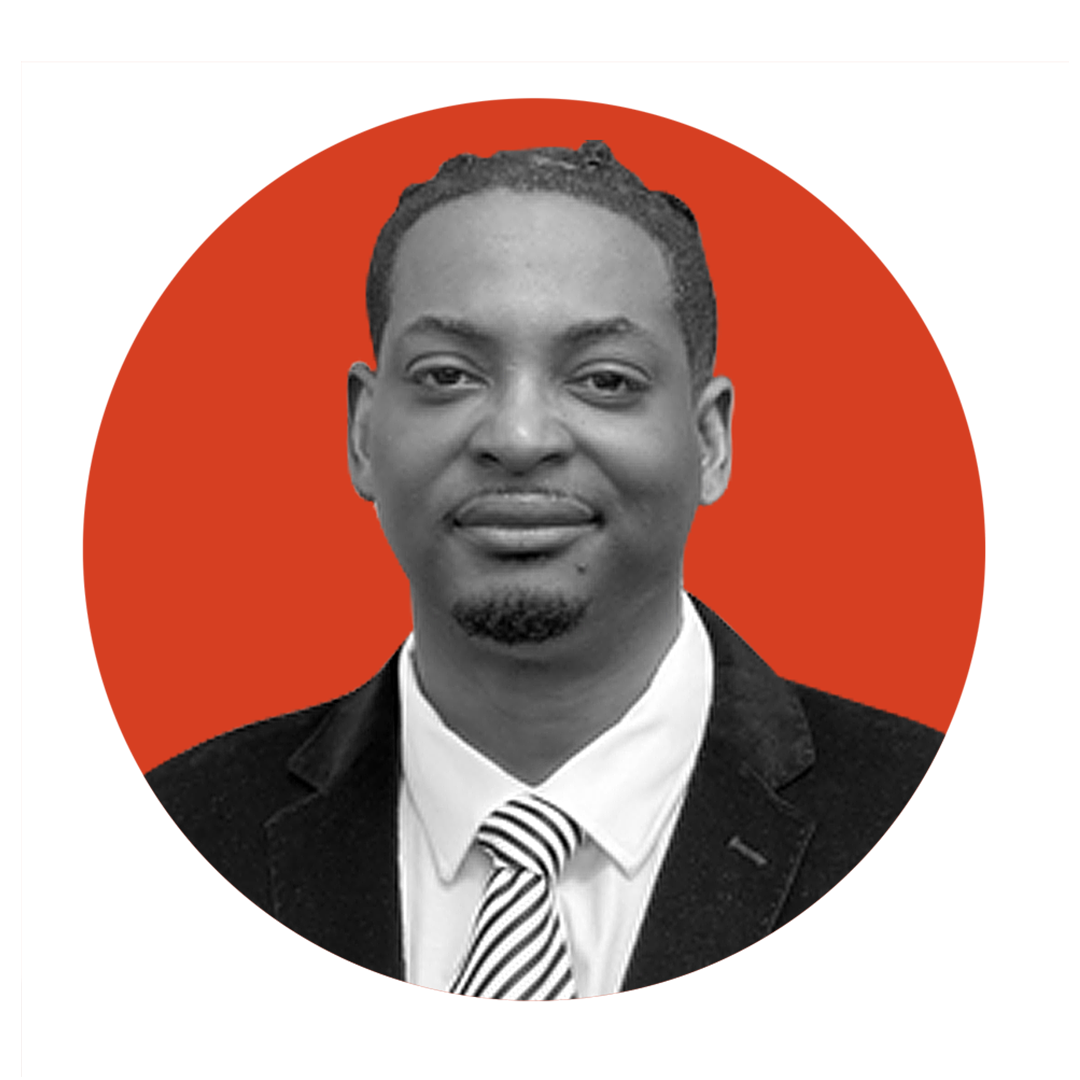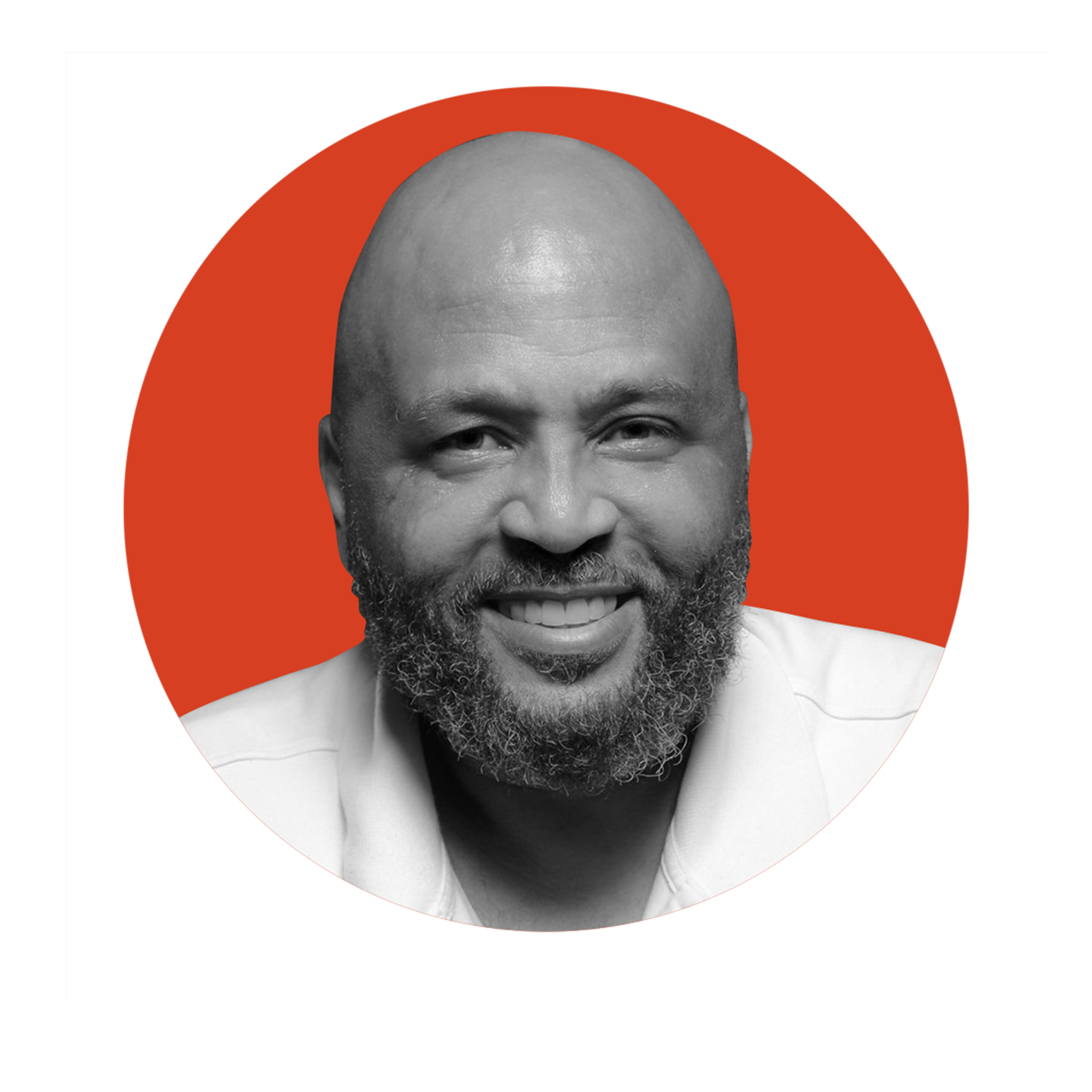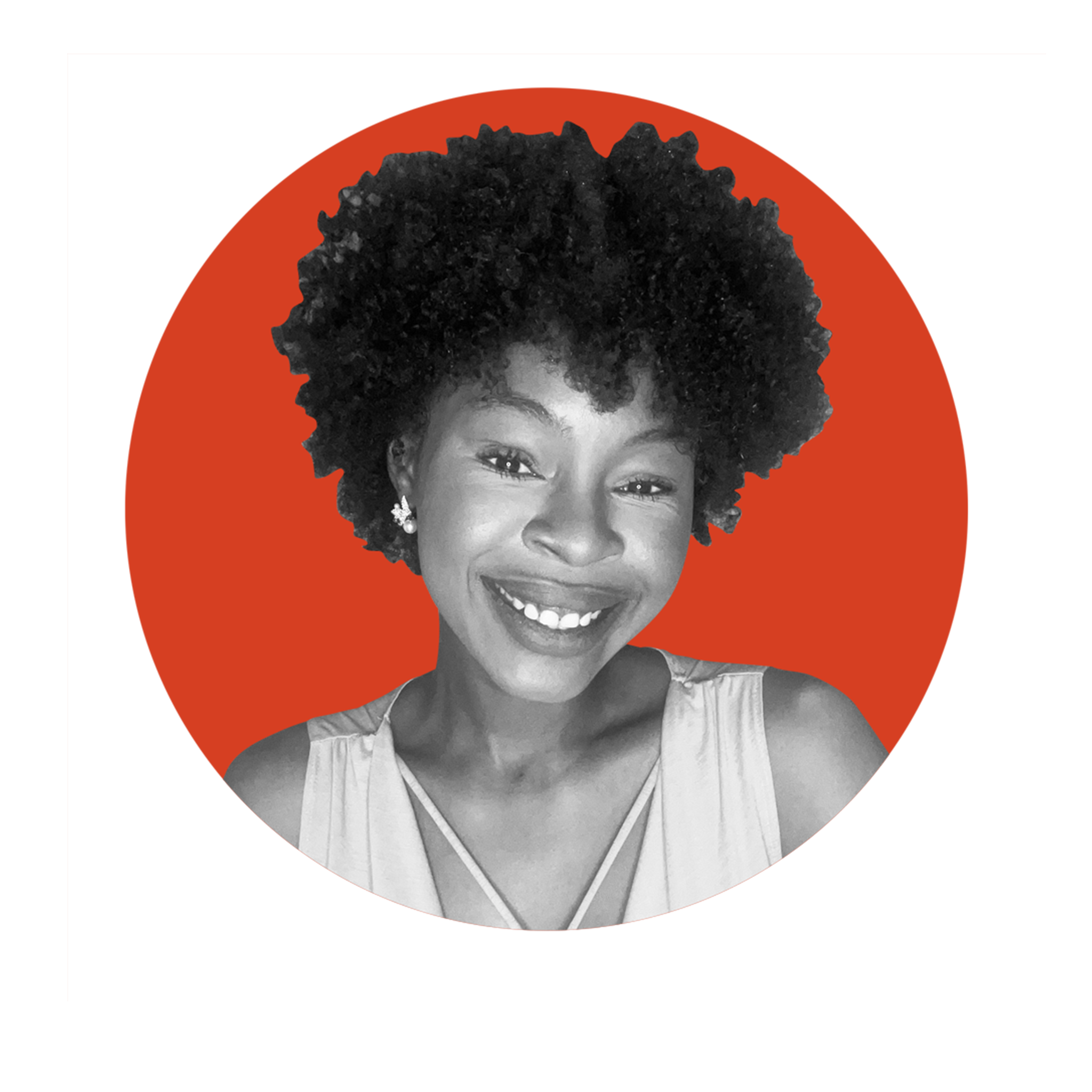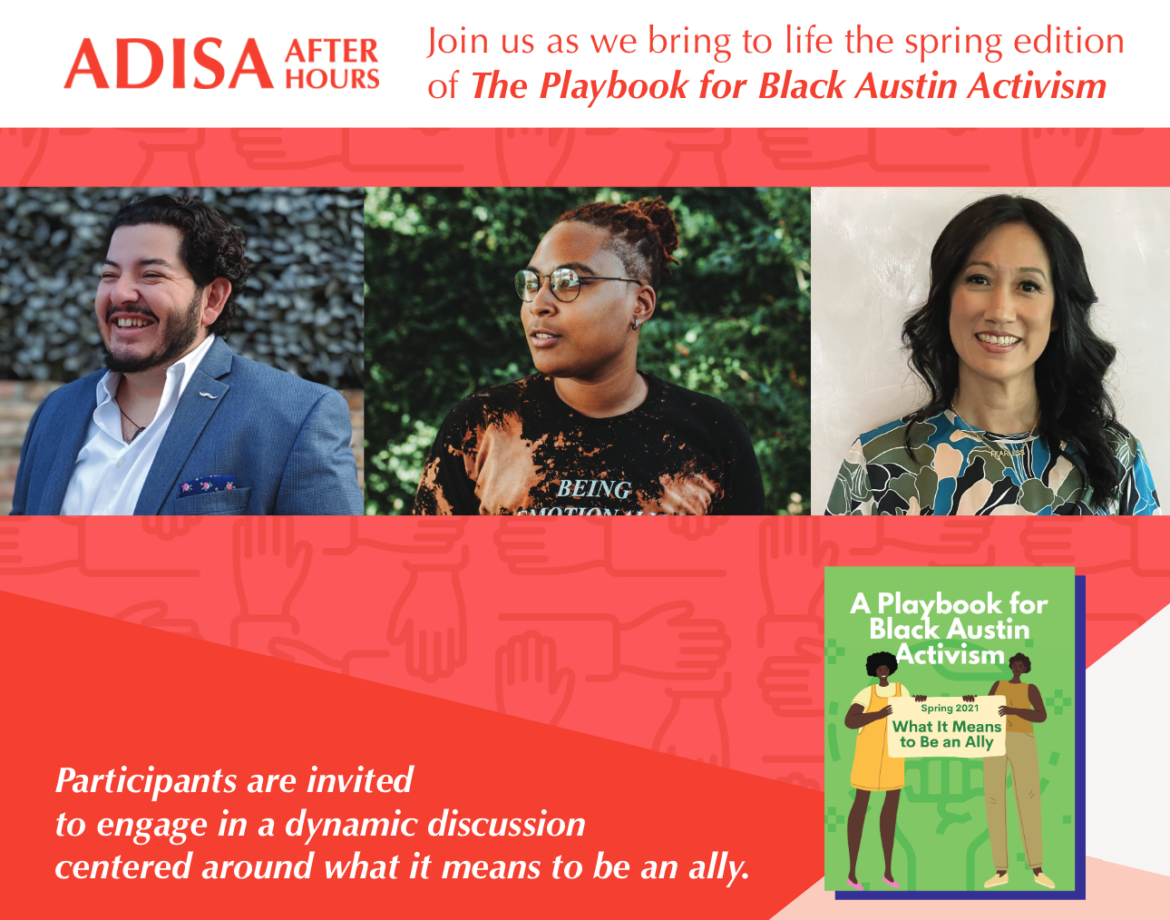
What it Means to Be an Ally (Adisa After Hours Recap)
The Adisa After Hours series introduces you to authors, coaches, and leaders to have intimate conversations about thought provoking and leading-edge topics. The After Hours series was born out of a question – “How can we give to our community in ways other than consulting?” Adisa has the opportunity to work with and have incredible conversations with unique individuals and they wanted to be able to offer that to the community.
The discussion for the night centered around allyship and what it means to representatives from the BIPOC and LGBTQIA+ communities. Participants had the opportunity not only to listen and to learn from one another, but to practice healthy interactions with members of these communities in real time.
The discussion goes hand-in-hand with the Spring 2021 edition of the Playbook for Black Austin Activism. The spring edition of the Playbook for Black Austin Activism is dedicated to George Floyd on the anniversary of his murder. It focuses on how to effectively be an ally and co-conspirator on behalf of BIPOC communities.
The panelists for the night offered a variety of perspectives and really helped all attendees dive deep into this idea of activism and allyship. Panelists included:
- Emlyn Lee of BRAVE Communities
- Jonathan Barona of Austin Community Foundation
- KB Brookins, Poet, Educator, and Activist
Participants had the opportunity to not only listen, but actively engage as well! The discussion kicked off with an icebreaker – “What does being an ally mean to you?” Themes around actions not words, breaking out beyond comfort zones, and being an ally WITH others instead of being an ally FOR others, among others, were brought up.
Shuronda then posed several questions to the panel regarding allyship. Read about the amazing conversation below. After the panel, to end the discussion, participants went into breakout rooms to reflect on a final question – “What are ways in which you can serve as a stronger ally?”
If this conversation piques your interest, be sure to register for the next Adisa After Hours! Follow Adisa Communications on Facebook to make sure you are alerted to the next After Hours. We hope to see you there!
Panelist Discussion on How to be an Ally (Recap)
Shuronda: Why did you say yes to this invitation? Why are you here tonight?
KB: I love the work you all are doing. I don’t see businesses take an interest in creating conversations around topics like social justice. I think allyship is a conversation that needs to keep happening, that needs constant intervention, that needs constant introspection from people that call themselves allies.
Emlyn: For me, allyship is so necessary. You can never have enough conversations about this. With everything that’s been going on, the social justice movement, the asian hate that is on the rise due to COVID… it’s just so much and we’re still behind screens. If we’re not able to interact in person, this is the next best thing.
Jonathan: The world was telling me we had to come together, Shuronda! Your name was popping up in lots of places – the work at ACF and the work in CRT, lots of different connections. So when I got the email to contribute to the Playbook, I was honored and excited about that. I’ve also been thinking a lot about my own life and how Black and Brown people work together around these issues that have been coming to the forefront over the last year.
Shuronda: What is your definition of an ally?
Jonathan: In our breakout group, one thing that came up was that the definition of allyship has changed over time. In addition to the support piece, there needs to be an intentionality – research and understanding – that has to be present in what it means to be an ally. Then there’s an action piece which has evolved into this co-conspirator, accomplice language that I’m a huge fan of.
KB gave an incredibly well thought out answer that focused on five main points:
- Speak up, stand up. Be that barrier. Allies speak up and stand up for those who are excluded from certain spaces, without an expectation of getting something in return.
- Solidarity, not charity. You must see the communities you are advocating for as equal to you. No one is voiceless, but it’s possible you’re not listening.
- Lead with vulnerability. You have to approach this work with a level of, “I have the capacity to mess up, to cause harm, but I’m ready to be accountable”
- Educate yourself. Specifically, I say, “yourself” because I don’t know that I need to be a part of that. The internet is vast so do your work as an ally.
- Apologizing. Don’t make excuses in the apology. Regardless of intention, recognize the impact and do better in the future.
Emlyn: There’s an aspect of calling out and calling in. Being able to recognize and understand your own privileges. There is some sort of privilege that you have compared to another person. How do you work alongside and with those who have been or are presently oppressed? How do you be an upstander? Calling out microaggressions, doing your homework, being intentional about listening and hearing the stories and voices of experiences that we don’t have in our own circle, bubble, lifestyle are all ways to be an upstander. The BRAVE in BRAVE Communities is actually an acronym – Building Relationships, Awareness, Voices, and Engagement. To be an ally, you have to be BRAVE.
Shuronda: How do we approach this work? How do we explore our own biases?
KB: For me, liberation means liberation for all people. So, surely, there are plenty of things I need to be learning about. Allyship is a process – the learning will never be over, even about my own community. I’m not Black in the same way someone else is Black and that experience of Blackness is just as valid. It takes work to embody allyship, to work on the knee-jerk reactions that happen when we are called out for things. Two years ago, I would get angry. Now, it comes up and I’m like, “How can we fix this?”
Jonathan: It has to be a conscious process. You have to be willing to do the work and do the work yourself. You also do not have to do all things at all times. That’s how people burn out. Be in the places where you know you can be there fully and engage in a very conscious and intentional way.
Shuronda: There are people who are willing to be an ally, but don’t have the understanding, haven’t had the practice, or are new to the practice… I just wonder, what is the role of a translator and is that a thing in allyship?
Jonathan: Having a translator is earned. You have to build a relationship with someone first, so that your questions are appropriate and so that they’re able to enlighten you on what it means to be an ally to their community.
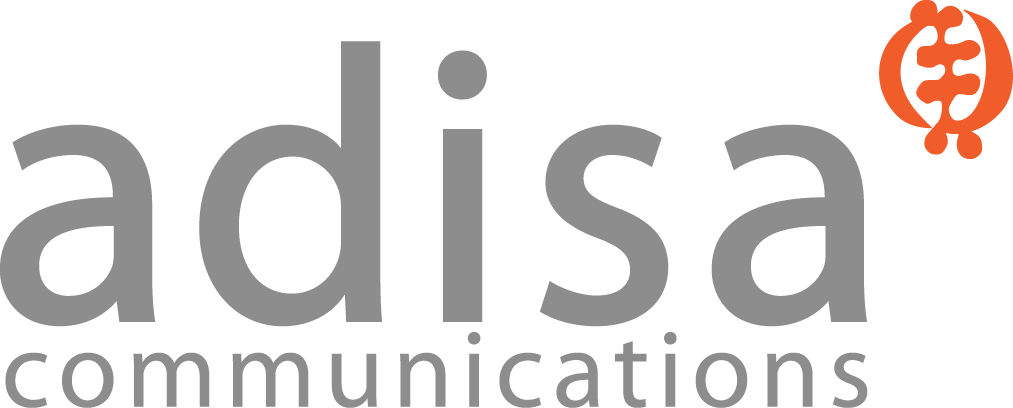
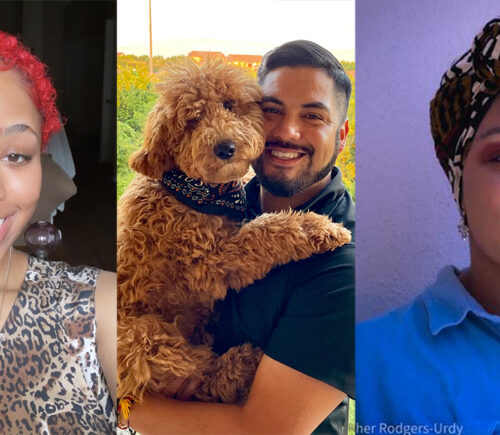
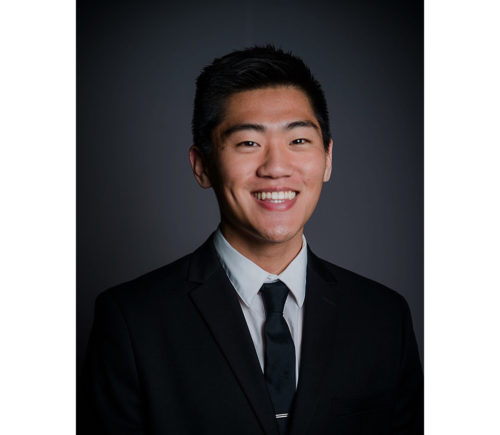
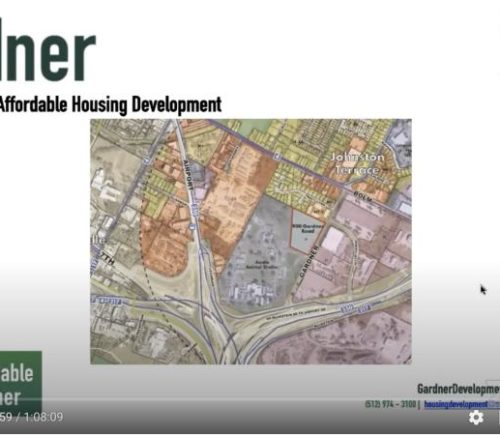
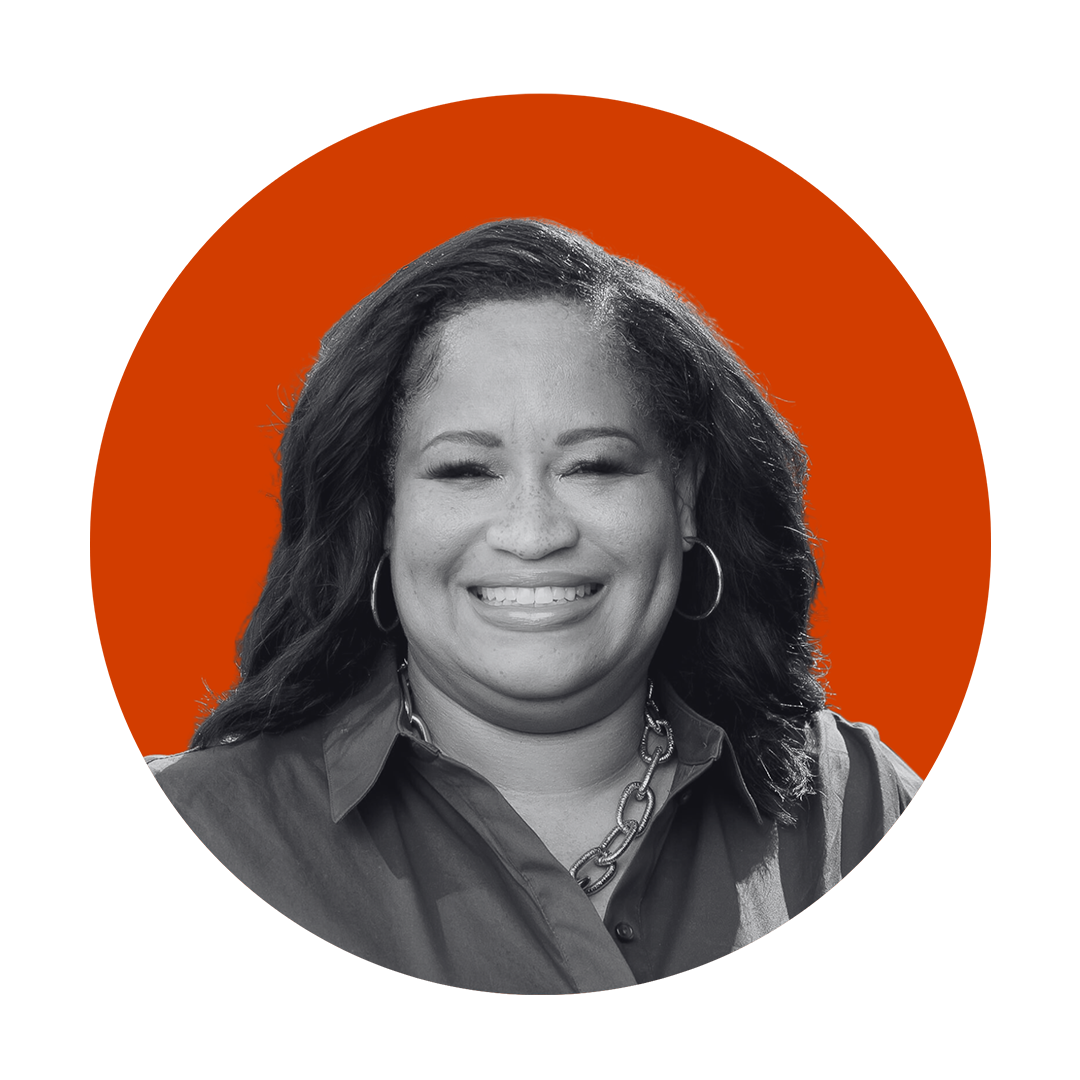
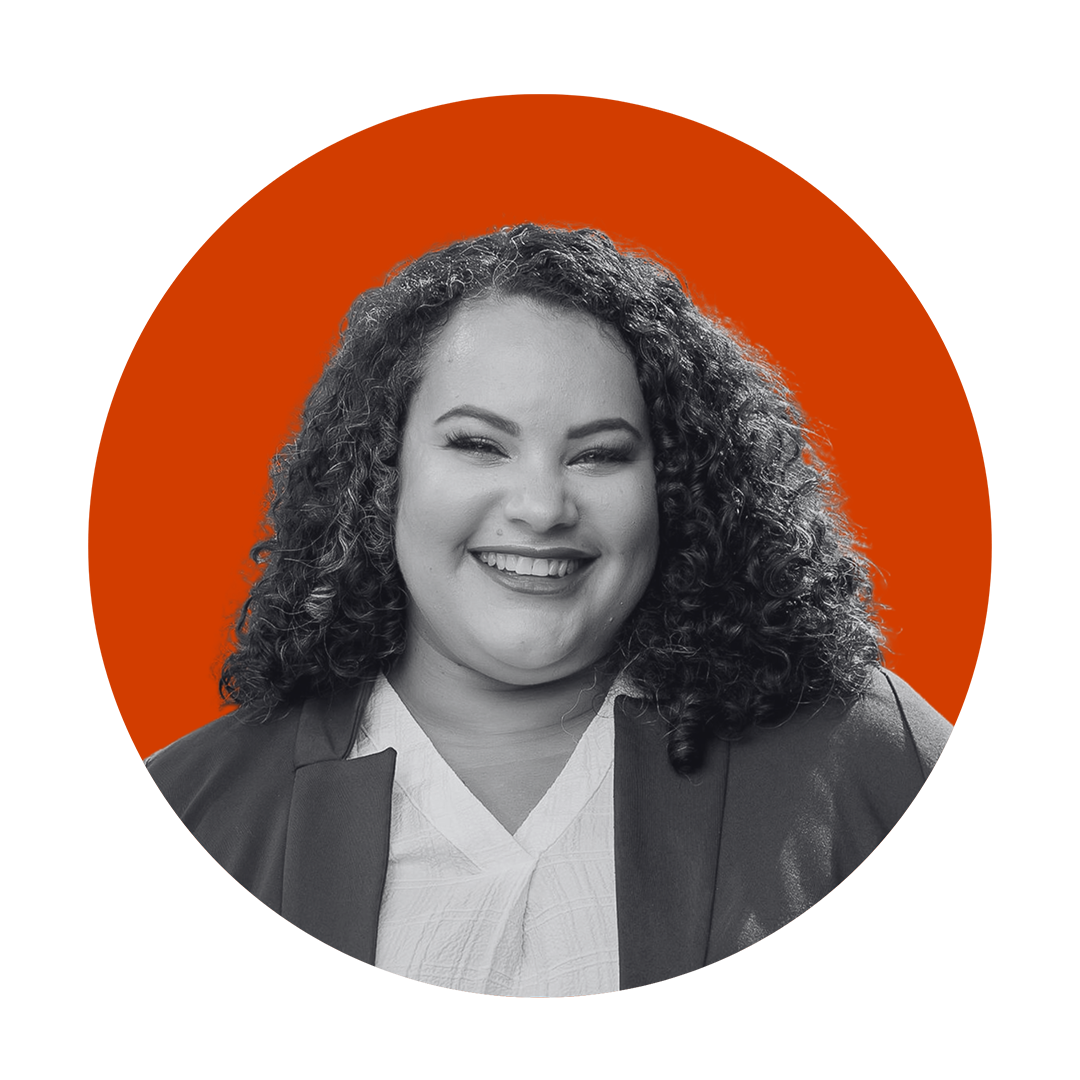
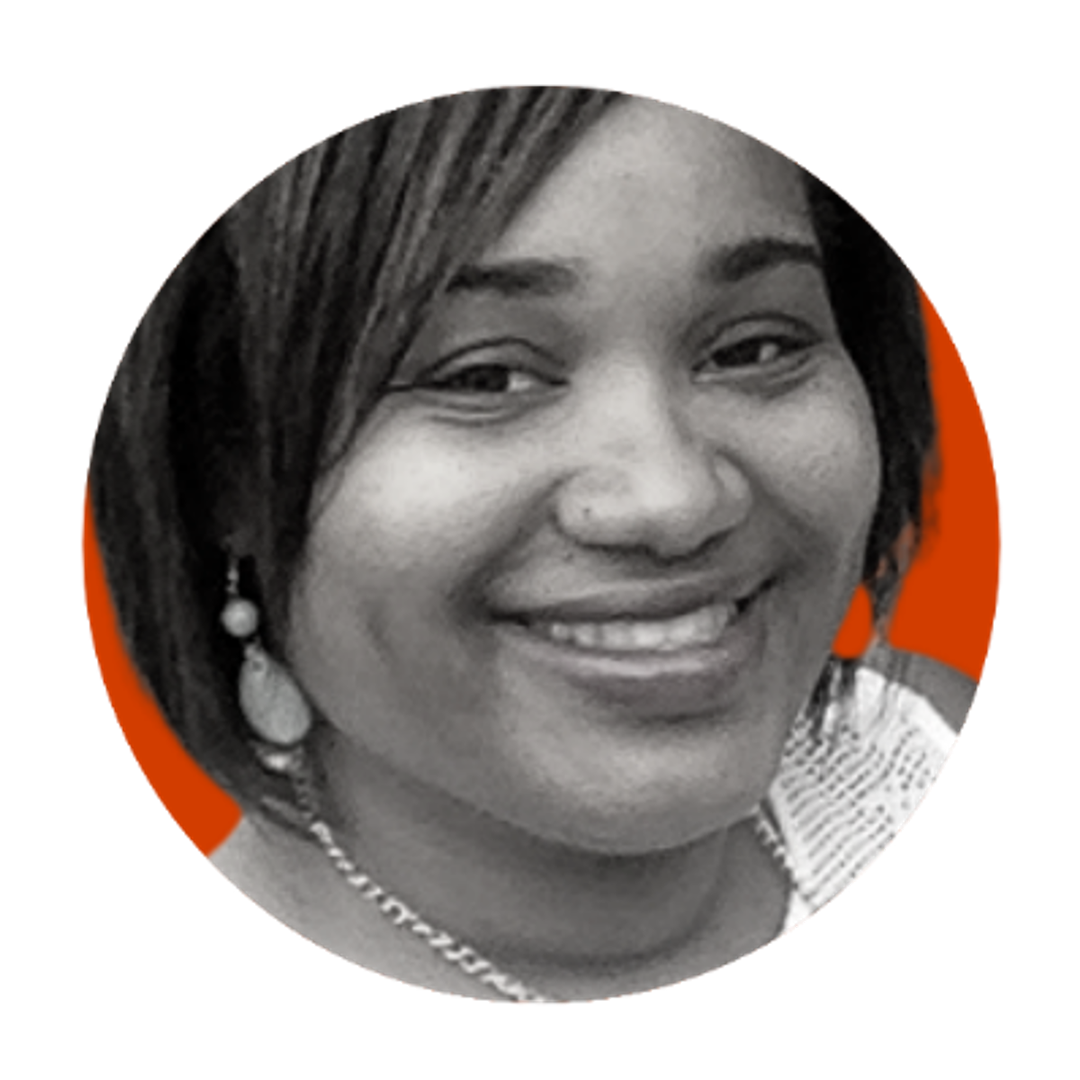
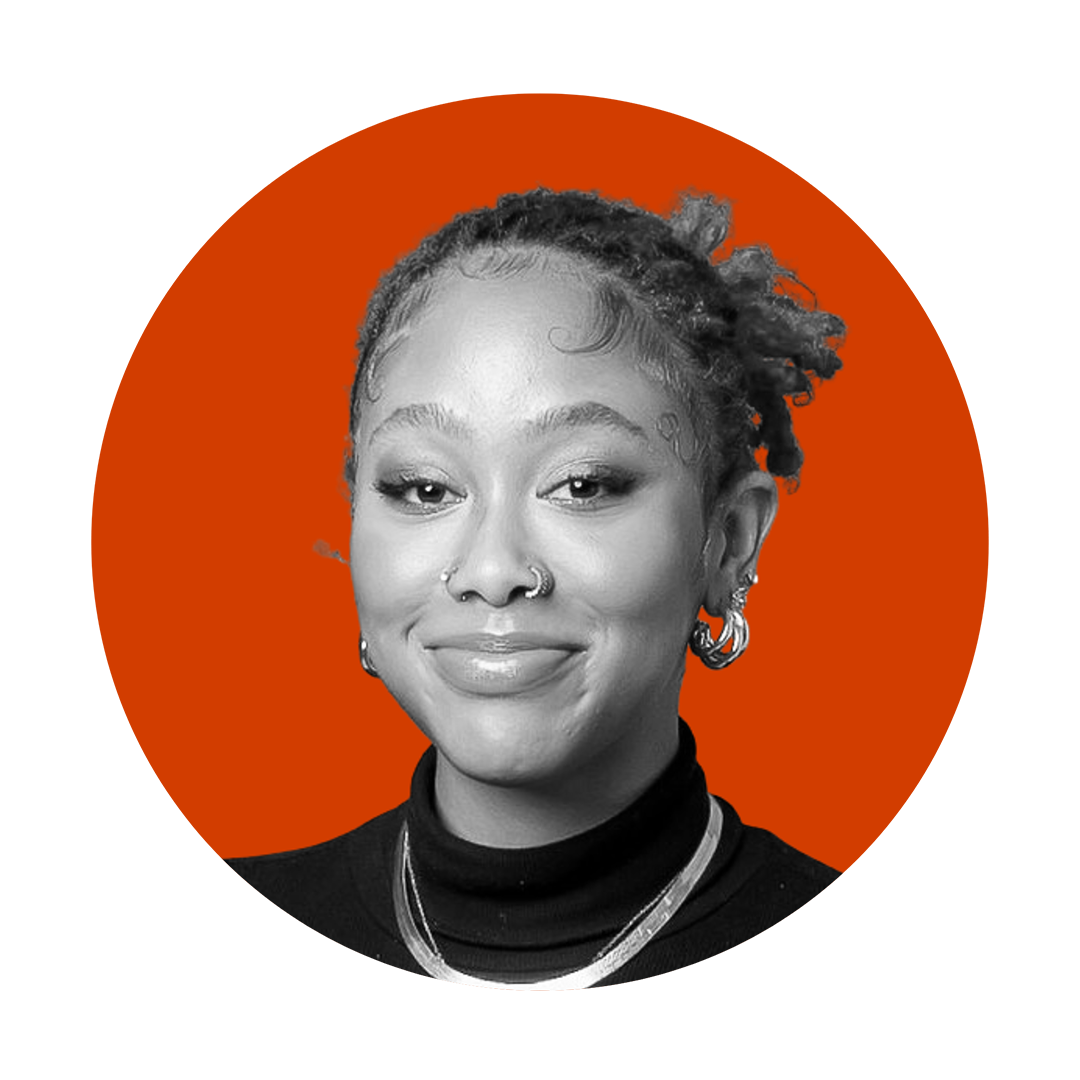

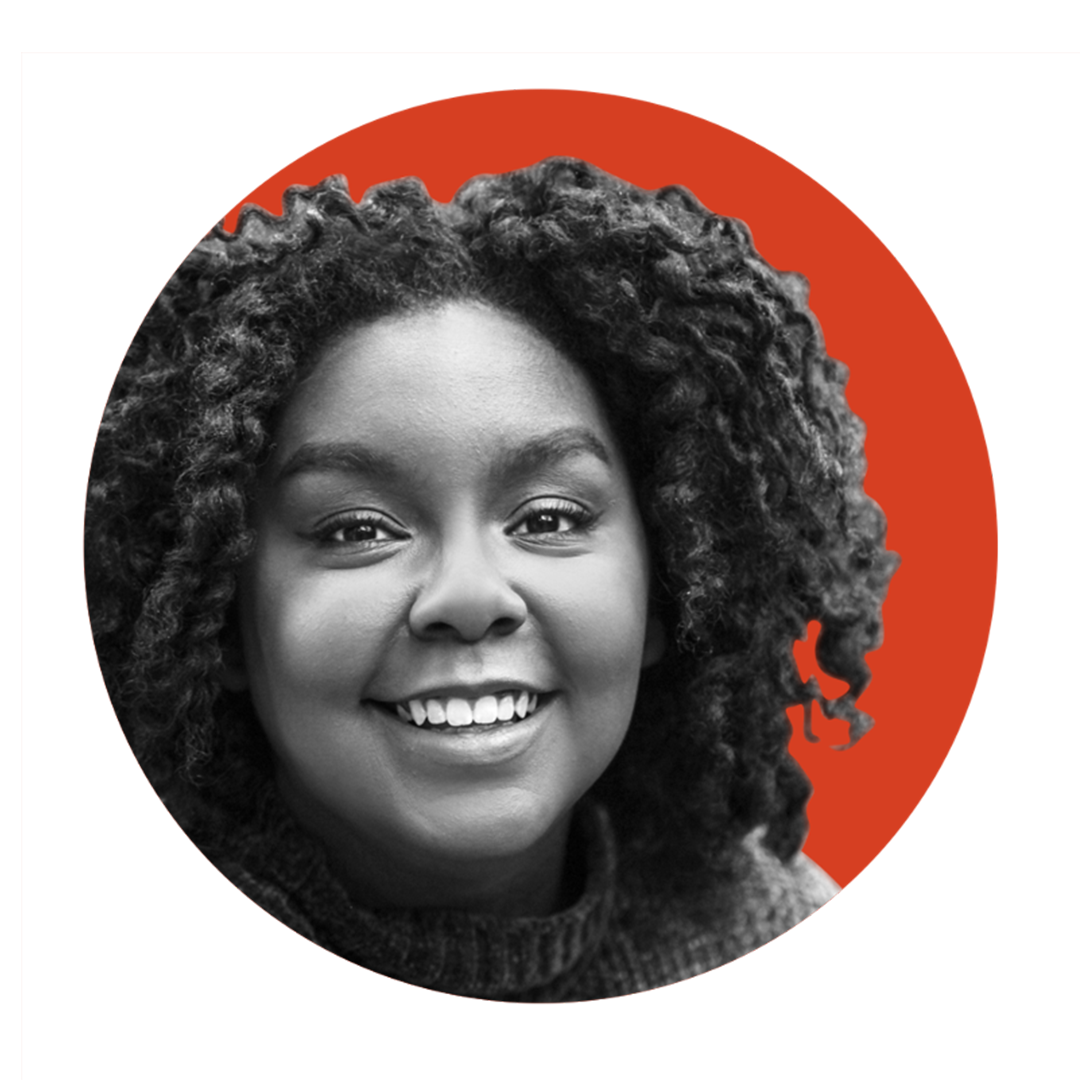 Joilynn Green is a Project Assistant at Adisa Communications. She specializes in event planning and logistics. In her spare time, she freelances as a theatre director and stage manager. She enjoys developing new plays and finding immersive, unconventional ways to bring stories to life. Joilynn has enjoyed working with the Vortex Repertory Company, New Manifest Theatre Company, Spectrum Theatre, and Austin Shakespeare.
Joilynn Green is a Project Assistant at Adisa Communications. She specializes in event planning and logistics. In her spare time, she freelances as a theatre director and stage manager. She enjoys developing new plays and finding immersive, unconventional ways to bring stories to life. Joilynn has enjoyed working with the Vortex Repertory Company, New Manifest Theatre Company, Spectrum Theatre, and Austin Shakespeare.